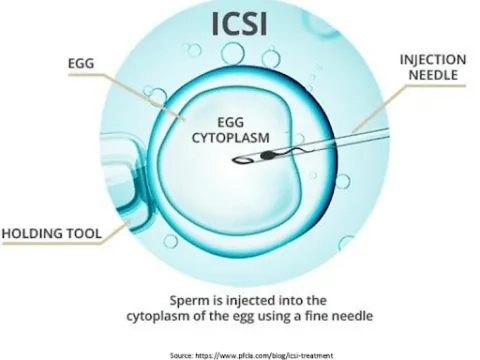Bearing a child of their own is every couple’s desire. At times this is difficult due to some gynecological issues. Gynecologists specialized in advanced infertility treatments and procedures such as IUI, IVF, ICSI can help couples become parents.
ICSI stands for Intracytoplasmic Sperm Injection. This is a step included along with the regular IVF treatment. Nisha IVF centre, one of the best IVF hospitals in Ahmedabad, welcomes couples who have difficulty conceiving naturally.
The Hospital has some of the best IVF doctors in Ahmedabad associated with them, treating couples with all kinds of complexities in child conception.
They are well equipped to carry out male and female infertility tests and treat the patient accordingly.
Once your test results are in, the doctors will diagnose the problems and suggest a line of treatment to the patient and, in some cases, both husband and wife.
Based on the diagnosis your doctor may suggest, IUI, IVF, ICSI if medicinal male infertility and female infertility treatments don’t help in natural conception.
Why ICSI?
When infertility is a problem, ICSI can help.
- When the male partner produces insufficient sperm to undertake artificial insemination, such as IUI or IVF.
- The sperm motility is low, meaning it has trouble accessing the egg.
- The appearance of the sperm is different than usual, especially near the head and tail.
- The sperm may not arrive due to an obstruction in the male reproductive canal.
- Despite the normal sperms, the eggs have not been fertilized through IVF.
- Using eggs that have been in vitro matured or that have been previously frozen.
How does ICSI help in increasing your chances of a successful IVF?
Similar to the process of IVF, a woman is given medication to stimulate egg production in the ovaries. Your doctor will be monitoring the egg development. Just as soon as they are ready to be retrieved, the ICSI procedure starts.
Retrieval of the egg and the sperm.
The male is asked to provide sperm. He can either ejaculate in a cup, or the surgeon can take it surgically.
The doctor makes use of an ultrasound probe and a small needle to extract several eggs from the woman’s ovaries. Although this process is painless, it may cause minor bruising and stiffness. First, eggs are retrieved, and then fresh semen is collected.
Injection of Sperm into the Egg:
The doctor chooses a single sperm that has been cleaned for the process. With a very thin hollow needle, this sperm is then directly injected into the egg. The sperm may take up to 24 hours to fertilize an egg and form an embryo.
Monitoring the Embryo:
For up to 6 days the fertilized embryos are watched for signs of development and growth. This phase is critical for selecting the healthiest and most viable embryos to be transported to the woman’s uterus.
Transferring the Embryos:
The surgeon uses a guided catheter to transfer about 2-3 matured embryos into the womb. It takes about 5 days for embryo implantation.
What happens after an ICSI procedure?
The would-be mother must do a pregnancy test utilizing a blood report or a urine pregnancy test kit two weeks after the embryo transfer. You must also inform the fertility centre of the test results. The findings of the tests will indicate how your IVF treatment will progress in the future.
The success rate of ICSI:
It is observed that there are approximately 80-85% chances that the egg fertilization is successful, similar to conditions where male infertility is not a problem.
Risk factors of ICSI:
There are chances of complications, but they are rare. Only a small percentage of eggs – usually less than 5% – may be ruined due to the needle insertion during the ICSI method. Also, the total risk of having a baby with an X or Y chromosome defect is just 0.8 percent or eight per 1000. The reasons are still unknown.
- ICSI does not raise the likelihood of chromosomal abnormalities like Down’s syndrome, but it does increase with the mother’s age.
- Several researchers have looked into the topic of developmental delays in ICSI children. There is, however, no solid proof that this is the case.
Conclusion:
Where it has been observed that the chances of conception are quite high with ICSI, risk factors are small. So, take the opportunity that science offers you to become parents and live a happy and fulfilled life.


